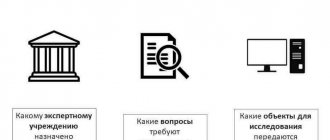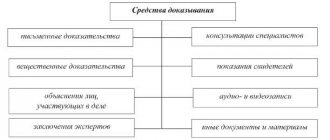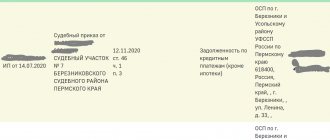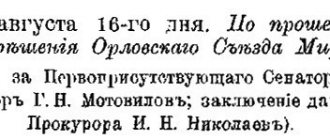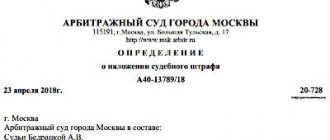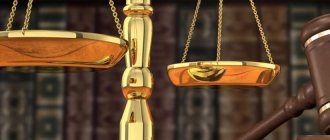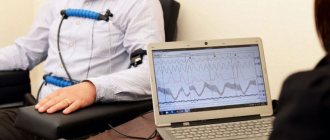application (petition) for examination in civil proceedings.
Before talking about the specifics of the procedure for appointing an expert examination in civil proceedings, it is necessary to find out who the expert is and what he is needed for.
An expert is a person who has special knowledge on issues related to the case under consideration and is appointed by the court to give an opinion. Thus, based on this concept, we can conclude that the expert makes conclusions. Expert opinions in accordance with the Code of Civil Procedure of the Russian Federation are evidence in the case, which allows the parties to refer to them to substantiate their claims and objections. An examination is appointed by the court in cases where questions arise in the process that require special knowledge in various fields of science, technology, art, and craft.
An examination may be ordered at any stage of the process before the court makes a final decision. It is important to note that it is best to submit a request for an expert examination at the stage of preparing the case for trial, so as not to delay the process and avoid postponing the court hearing.
The procedure for conducting the examination
In general terms, the examination procedure looks quite standard.
- First, a person who needs to conduct an in-depth examination of a product contacts an expert organization or an independent expert with a corresponding application.
- Then the product is provided, in relation to which it is necessary to carry out expert manipulations.
- Next, the specialist performs an examination strictly according to established standards and rules, which include a number of analyzes and experiments, and based on the results of these actions, issues a conclusion: the so-called “Examination Act”. This act can later be used as an irrefutable argument in court and be part of the basis for collecting damages from the guilty parties.
If the request for an examination occurred due, on the contrary, to the need to establish the innocence of a person/organization in causing damage to the goods, then the expert’s conclusions will also serve as sufficient evidence of this.
Rights and responsibilities of an expert in civil proceedings.
The expert is obliged to accept the examination assigned to him by the court and conduct a full study of the presented materials and documents; give a reasoned and objective opinion on the questions posed to him and send it to the court that ordered the examination; appear when summoned by the court to personally participate in the court hearing and answer questions related to the research conducted and the conclusion given by it.
If the questions raised go beyond the expert’s special knowledge, he is obliged to send the appropriate notification to the court.
The expert is obliged to ensure the safety of the documents provided to him, and also to return them to the court along with an opinion or a message about the impossibility of giving an opinion.
If the expert does not submit an expert opinion within the time limit established by the court ruling, provided there is no reasoned message from the expert or forensic institution about the impossibility of conducting the examination in a timely manner or about the impossibility of conducting the examination for reasons provided for by the Code of Civil Procedure, a fine is imposed on the director or the culprit.
The expert does not have the right to independently collect materials for the examination; enter into personal contacts with the participants in the case, if such contacts may raise doubts about the expert’s disinterest; disclose any information that became known to him during the examination; inform anyone about the results of the examination, with the exception of the court that appointed it.
An expert or a forensic institution does not have the right to refuse to conduct an examination assigned to him within the time period established by the court, citing the refusal of the party to pay for the examination before it is carried out. In case of non-payment of the examination by those participants in the process on whom payment is entrusted, the forensic expert sends a conclusion with documents confirming the costs of the examination. The court recovers such an amount from the participants in the process in accordance with the Code of Civil Procedure of the Russian Federation. In practice, the forensic examination is paid for by the party requesting it. But the court has the right, at the request of a party, to recover the costs of payment from the other party. An examination ordered at the initiative of the court is paid for from the budget.
The expert, if necessary, has the right to familiarize himself with the case materials related to the subject of the examination; has the right to ask the court to provide additional materials and documents for research; ask questions to persons involved in the case and witnesses, as well as petition for the involvement of other experts in conducting the examination.
Concept and types of forensic examinations
Forensic examination is a procedural action carried out in order to obtain an opinion on issues of evidentiary value in the case.
A person who has special knowledge and is appointed in accordance with the decision of the investigator to give such an opinion is called an expert.
The most common are forensic examinations (traceological, ballistic, examination of bladed weapons, etc.). Traceological examination examines material traces in order to identify the objects by which they are formed (traces of feet, shoes, burglary tools, vehicles, animals).
It is customary to classify fingerprint examinations as a separate group, examining traces of hands, palms, bare feet, lips, in which patterns of papillary lines and flexor folds are displayed. This also includes examinations for the purpose of identifying the whole in parts (objects, fabric, ropes, etc.).
The study of traces-reflections also helps to determine the mechanism for committing any act, the place, time of a specific event.
Examination of documents is divided into handwriting examination, which examines handwriting into a system of movements manifested in the manuscript (text, signature, digital designations), 41 technical and forensic examination of documents, the objects of which are the texts of documents, seal impressions, stamps, telegraph and postal symbols, typewritten texts, printing products, as well as ink, pastes, paper and other document materials.
As part of these examinations, forensic author-editing examinations have recently begun to develop to identify the author of a handwritten or typewritten text. Ballistics examines firearms, ammunition and traces of their use, as well as items used for their manufacture and storage.
It resolves issues of the technical condition of weapons and ammunition, their functional suitability, identification of specific instances of weapons based on marks on bullets and cartridges, and establishes the circumstances of the shot.
An examination of the study of edged weapons determines whether knives, flails, bats and other items are classified as such weapons, the carrying and storage of which entails criminal liability.
Phototechnical examination is carried out in order to identify the camera from the exposed film, cropped frame from photographs, and determine the group affiliation of photographic materials.
From the images in photographs it is also possible to identify various objects and the situation at the scene of the incident.
A photographic portrait examination is carried out for the purpose of identifying a person by physical features captured at different times in photographs, as well as by intravital photographs and the skull.
The needs of practice prompted criminologists to develop methods for studying a number of objects, which formed the basis of examinations, united by a common name - forensic examinations of materials, substances and products (FEMVI).
This may include objects such as soils, paints and varnishes, fibers, drugs, fuels and lubricants, etc. As part of these examinations, methods for studying microparticles and microtraces have been developed.
These studies are carried out to determine the group affiliation of objects, and in some cases to establish identity.
In addition to forensics, other types of examinations are carried out in criminal cases, during which knowledge from various fields of science and technology is used. Forensic medical examination is divided into examinations of corpses, physical evidence of a medical nature, living persons, medical-toxicological examination and examination of case materials.
Physical evidence of a medical nature includes traces of blood, human and animal hair, human body secretions, bone and muscle tissue. Medical and toxicological examination is carried out in cases of poisoning, food poisoning of bacterial and non-bacterial origin. Examinations of living persons establish the presence and severity of injuries, state of health, artificiality and feignment of diseases, sexual status and its disorders, pregnancy, childbirth, abortion, a person’s age, and alcohol intoxication.
Forensic psychiatric examination consists mainly of examining persons whose mental fitness is in doubt, and determining the state of sanity or insanity of the person.
There are forensic psychiatric examinations of accused (suspects, defendants), witnesses and victims.
The class of engineering and technical examinations includes forensic-autotechnical examination, as well as safety examinations, construction-technical, fire-technical, engineering-technological, explosion examinations.
Automotive technical expertise is asked questions related to the study: a) the condition of vehicles; b) the circumstances of the traffic accident; c) the mechanism of the incident or its individual elements.
The objects of commodity examinations can be industrial goods, food products, etc., which determines the specific type of examination. The main task of such examinations is to establish compliance of the objects under study with GOSTs, technical specifications and standards.
In the group of financial and economic examinations, when investigating crimes, forensic accounting examinations are most often carried out.
Identifying surpluses and shortages of commodity and monetary assets, establishing the amount of material damage, the causes and conditions of its formation, determining the correctness of the actions of officials in accounting and control - these and other tasks are solved by expert accountants who study accounting transactions and various accounting documents for this purpose for certain periods.
Evasion of parties from participation in examination in civil proceedings.
If a party evades participation in the examination, fails to provide the necessary materials and documents for experts, and if without such participation the examination becomes impossible, the court has the right, depending on which party evades the examination, as well as what it has for it value, has the right to recognize the fact for the clarification of which the examination was appointed as established or refuted.
Thus, the legislator has established a position in which attempts to deviate from participation in the examination will always turn out not to be in favor of such a person.
Step-by-step execution of forensic examination
Any criminal case has its own specifics, which are certainly taken into account by professional experts. Even the smallest detail in the research process can be decisive both for the investigation and for the trial. Consequently, any professional treats such work with particular scrupulousness and responsibility. Inaccurate data or conclusions drawn by experts can cause irreparable results. As a result, a completely innocent person may suffer. Therefore, accuracy and attentiveness to the object under study is considered a particularly important point in expert activity. Carrying out forensic examinations of a criminal nature is trusted only to specialized specialists. It depends on the nature of the research that the court needs. If the case concerns a murder, forensic experts with many years of experience in this field are certainly involved. It happens that during the research process new details are revealed that require the intervention of professionals in other fields. For example, in the case of a gunshot wound, a ballistic examination is prescribed to help determine the trajectory of the bullet and the angle of the firearm at which the shot was fired. The information obtained allows us to find out the location of the alleged killer. In their work, forensic experts adhere to a well-developed and tested step-by-step scheme, which involves:
- investigation of the scene of the incident;
- issuing directions for conducting an examination;
- detailed familiarization with the materials of the criminal case;
- selection of suitable equipment for further expert work;
- thorough medical examination of the facility;
- preparation of appropriate reporting documentation.
These eight steps are considered mandatory for any expert working in the field of criminal forensics. However, the listed works, depending on the specific case, may be supplemented with new items. Therefore, it is important to involve experienced specialists in such studies who have not only theoretical knowledge, but also many years of practical experience, who will be able to discern all the nuances of the work entrusted to them and determine the order of work. Modern means, high-tech equipment and innovative techniques allow forensic experts to thoroughly examine any material, object or item. For such studies, special laboratories are used, which are available in almost every expert organization.
Why choose MCEO to perform forensic examinations?
Specialists from the Interregional Center for Expertise and Assessment perform the trial. Expertise in criminal proceedings for more than ten years. Thanks to the accumulated experience, we solve problems of any complexity. If, for criminal proceedings, an interested party needs assistance in ordering an examination, the professional lawyers of MCEO will help draw up a petition, as well as draw up a special information letter for the judicial authority. Based on such an appeal, the court will appoint our expert center as the executor of the future court. expertise in your criminal trial. The staff of MCEO consists of highly qualified, well-trained professional experts who work in various fields, including:
- forensic;
- handwriting;
- construction;
- fire department;
- chemical;
- automotive technical;
- medical
In any of the listed areas, research is carried out here, conclusions are drawn up with relevant details and conclusions.
Features of the product examination report
If you need to draw up a certificate of examination of goods, and you have never done this before, look at the example below and read our recommendations - taking them into account, you can easily generate the necessary document.
Before proceeding to a detailed description of the act, we will give some general information.
- The act can be written in free form or, if the organization has a document template, according to its type. You can fill it out manually or type it on a computer (with mandatory subsequent printing). In this case, for an expert opinion, either a simple blank sheet of paper of any convenient format (preferably A4 or A5) or a letterhead will be suitable.
- The act must certainly be signed personally by the person who conducted the examination, as well as by the persons present at it (if there were any acts). The document must be stamped.
- The act is drawn up in at least two copies identical in content and equivalent from a legal point of view. One of them remains with the expert, the second is transferred to the interested party. If there is a need, you can make additional copies of the act, having them properly certified.
